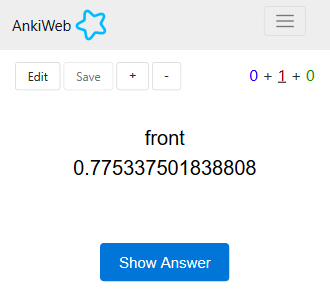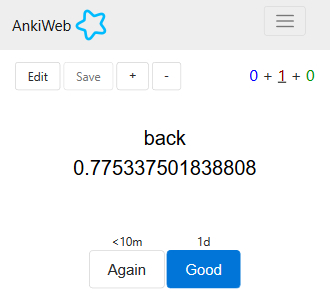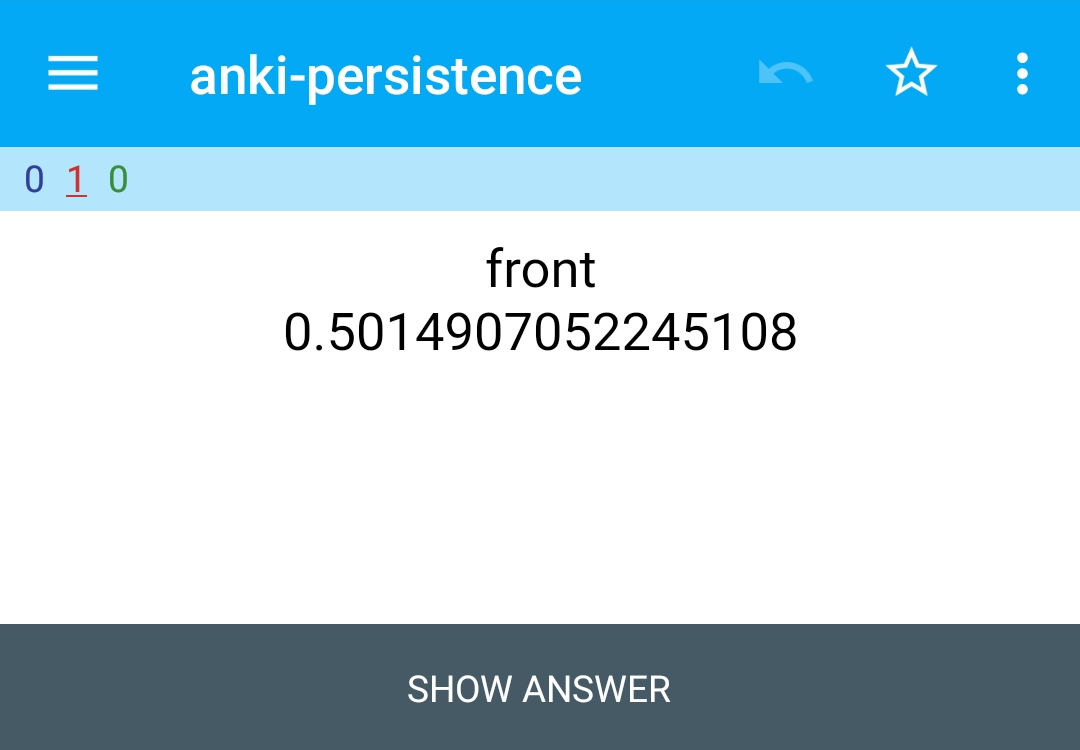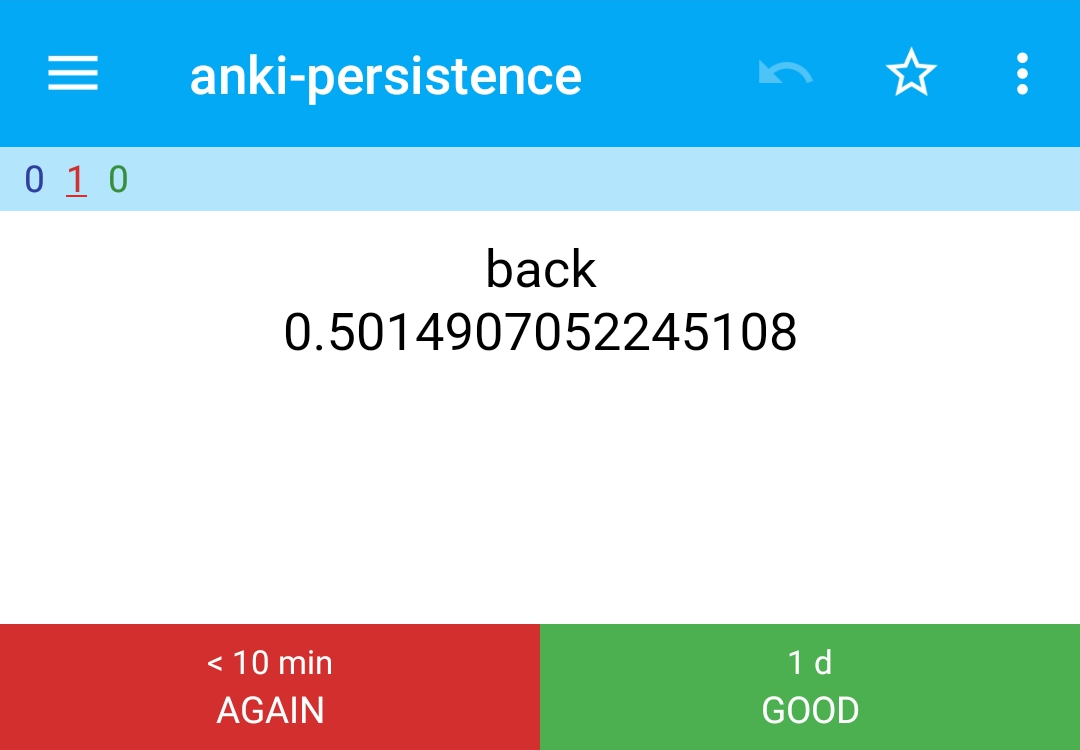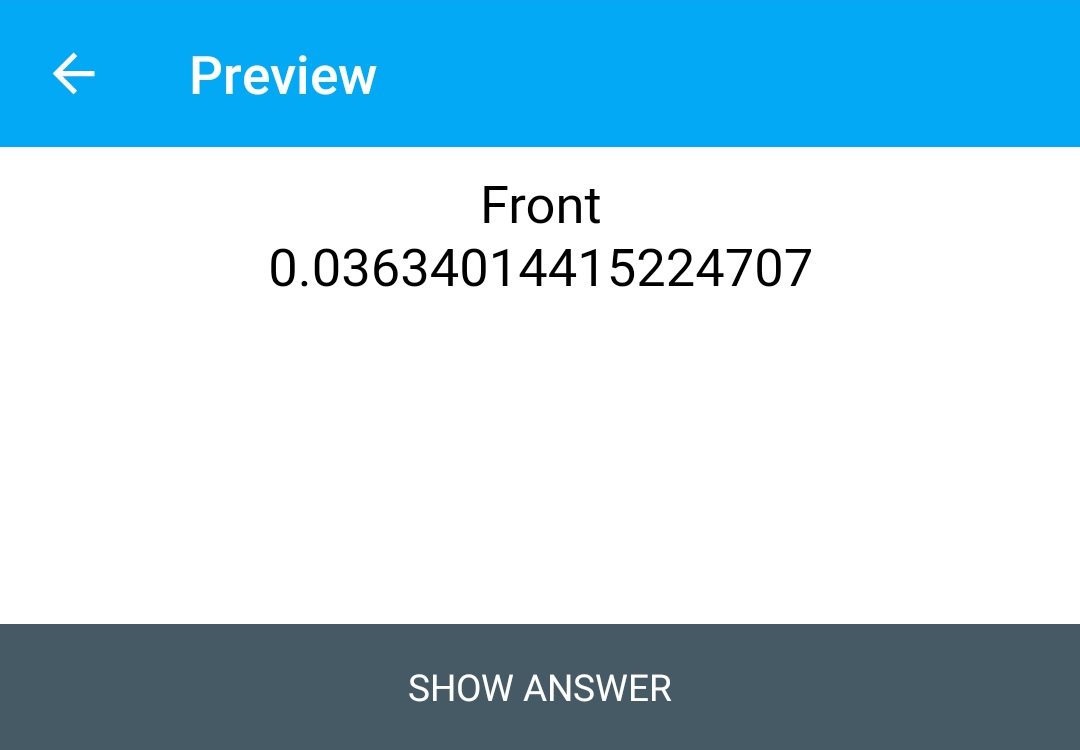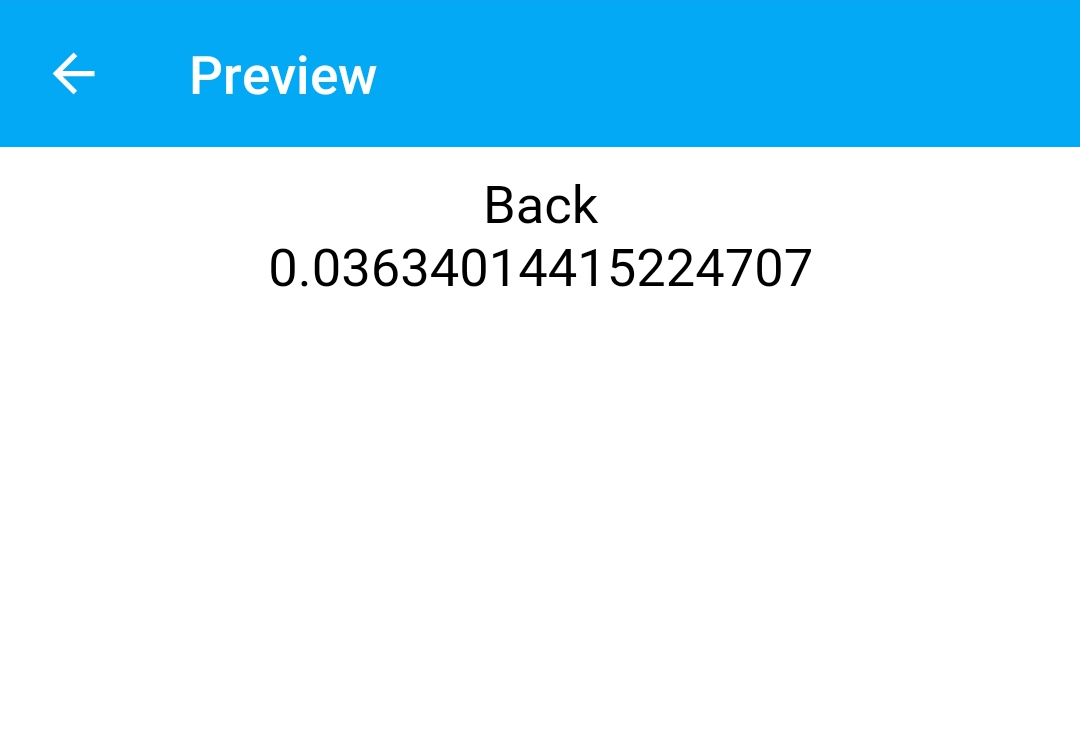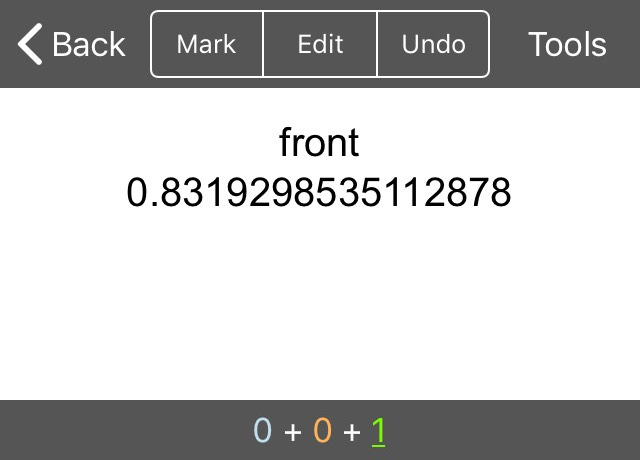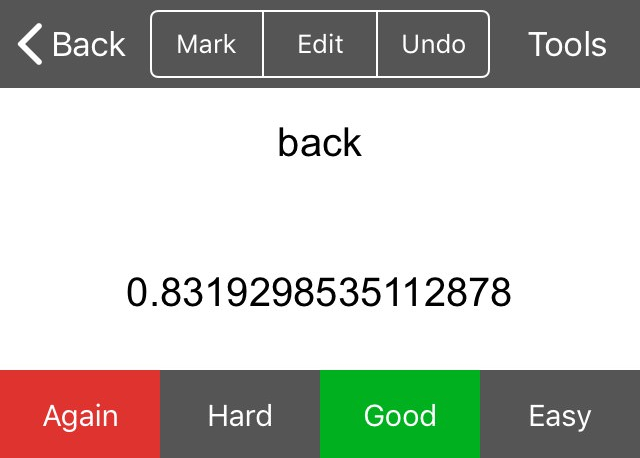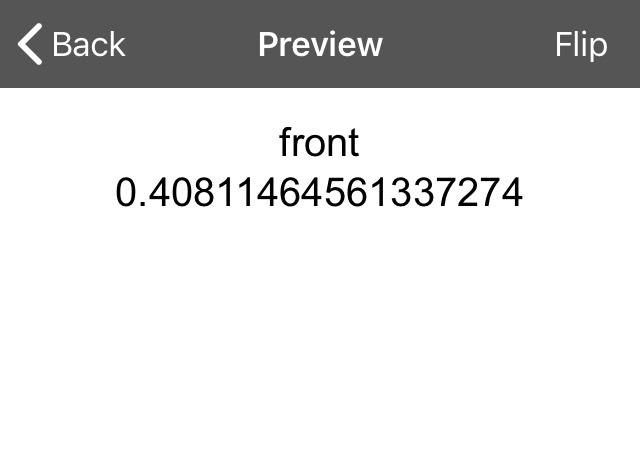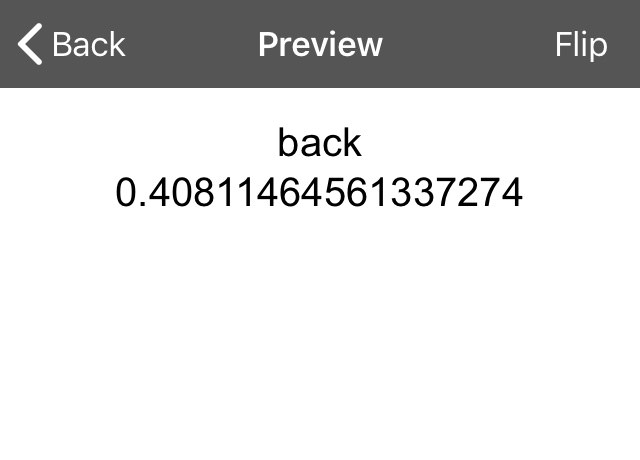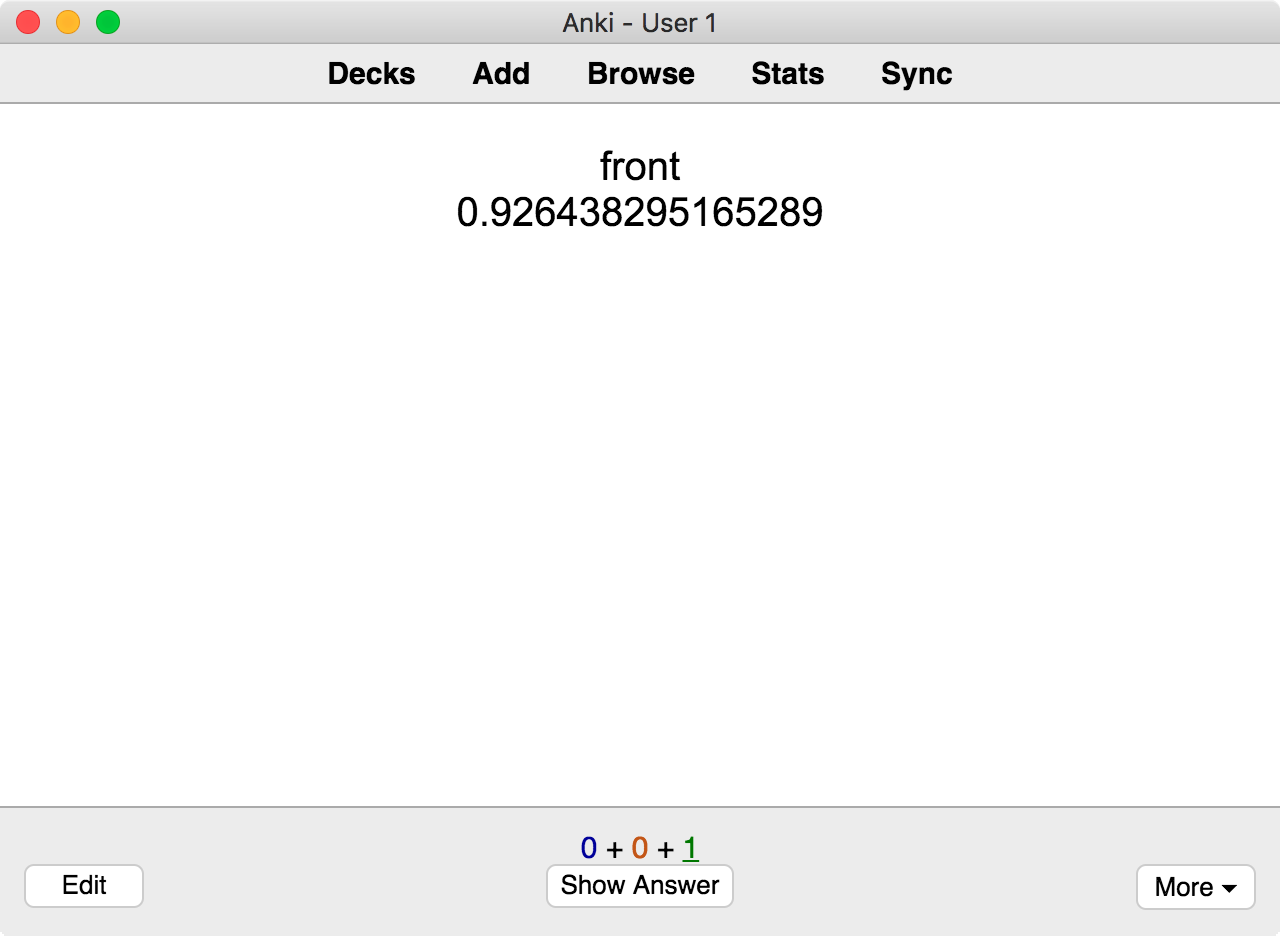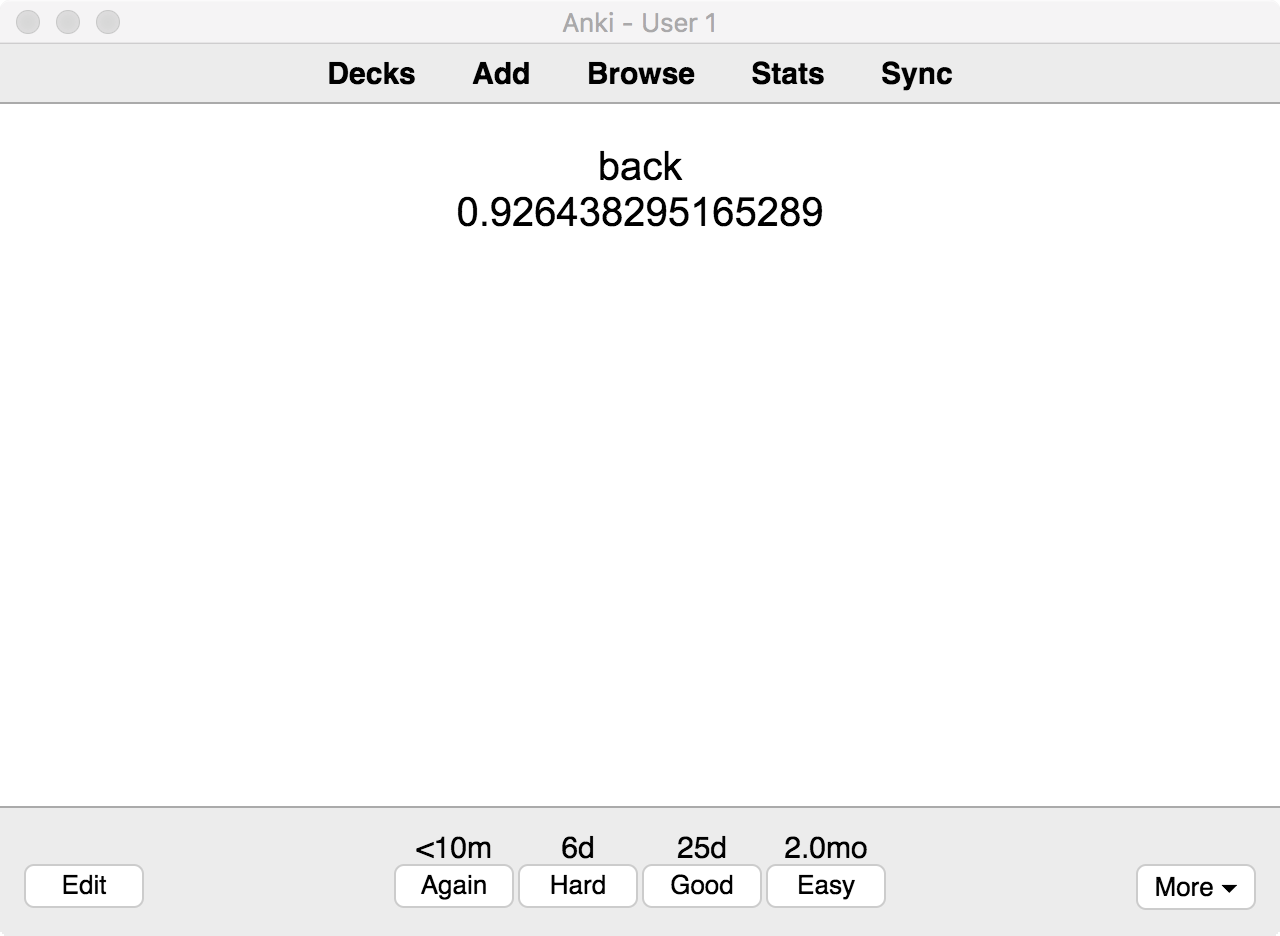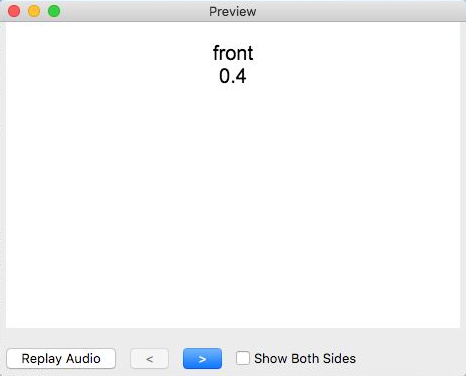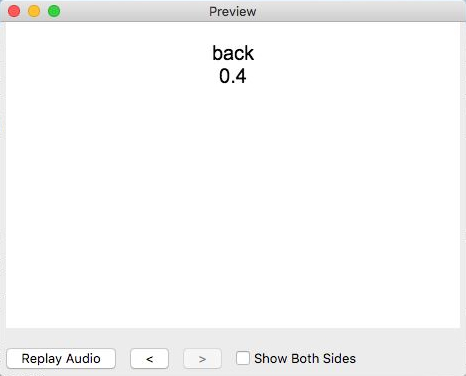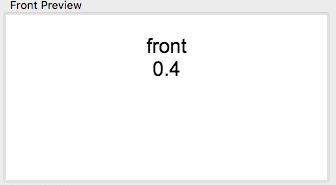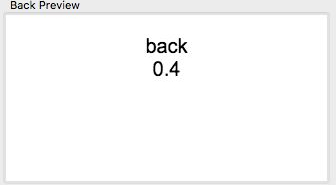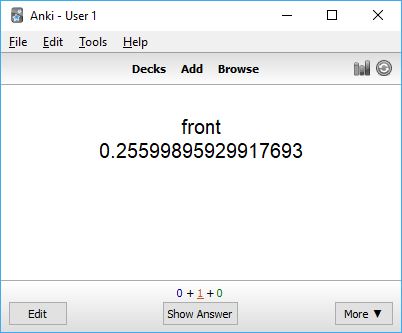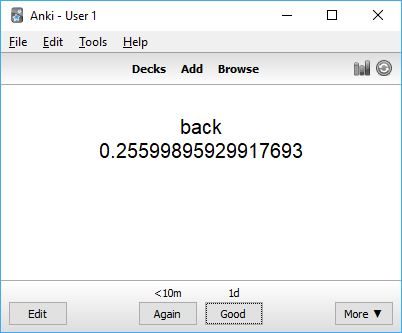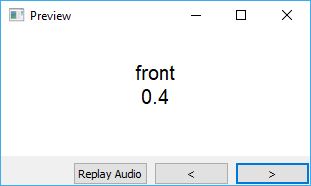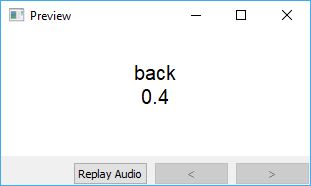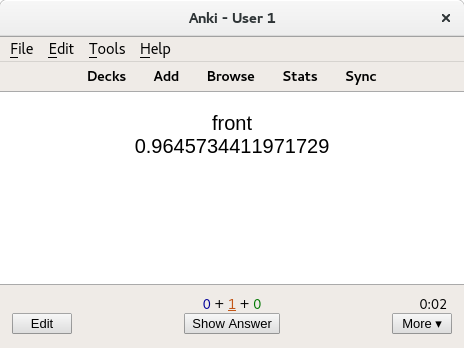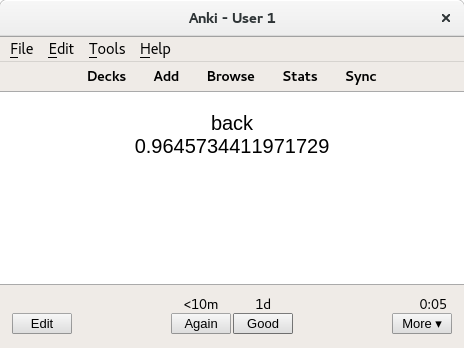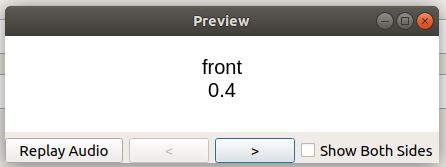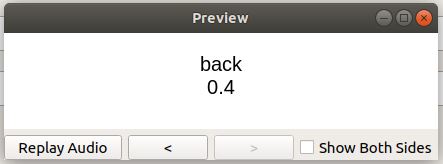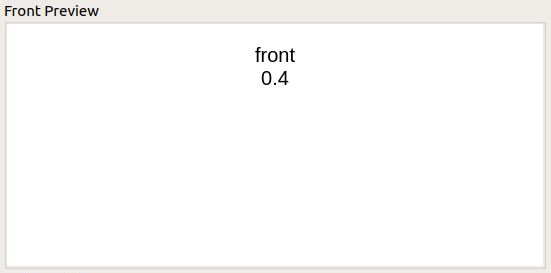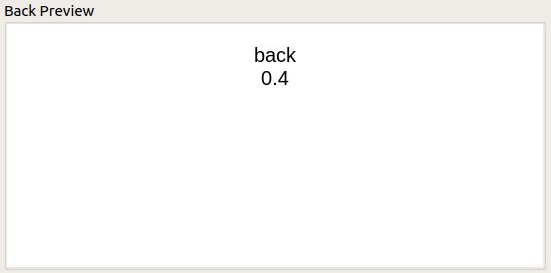Persist data between both sides of an anki flashcard.
While the following example explicitly shows the random number, it could instead be used internally to do many different things:
- Choose one of several pictures (at random) - Maybe someone wants to learn the names of instruments from a picture depicting it; One of multiple views of the instrument could be shown, a different one in every review.
- Reorder elements in the card - Shuffle the answers of a multiple choice question.
- ...
It could also be used completely different as well. To let the user input something on the frontside and use that same input on the backside for example.
This example shows how anki-persistence can be used to display the same random number on both sides of an Anki flash card. All of these images depict the same card! You can try it out yourself with this exported Anki deck.
The most powerful feature of this project is that you can check availability of persistence on the front side - there should never be a case where Persistence.isAvailable() returns true on the front- and false on the backside (if there is, please create a bug report, so it can be fixed as soon as possible).
The shown example chooses 0.4 as default value - to be overwritten if Persistence.isAvailable returns true (which is not the case for desktop client previews). Therefore the card will only use the random number when it is sure that it can be persisted to the back side, and default to 0.4 otherwise.
<script>
// v1.0.0 - https://github.com/SimonLammer/anki-persistence/blob/cd2ca88e019dc3b8f32dad623932c1eabdba7e21/script.js
if(void 0===window.Persistence){var _persistenceKey="github.com/SimonLammer/anki-persistence/",_defaultKey="_default";if(window.Persistence_sessionStorage=function(){var e=!1;try{"object"==typeof window.sessionStorage&&(e=!0,this.clear=function(){for(var e=0;e<sessionStorage.length;e++){var t=sessionStorage.key(e);0==t.indexOf(_persistenceKey)&&(sessionStorage.removeItem(t),e--)}},this.setItem=function(e,t){null==t&&(t=e,e=_defaultKey),sessionStorage.setItem(_persistenceKey+e,JSON.stringify(t))},this.getItem=function(e){return null==e&&(e=_defaultKey),JSON.parse(sessionStorage.getItem(_persistenceKey+e))},this.removeItem=function(e){null==e&&(e=_defaultKey),sessionStorage.removeItem(_persistenceKey+e)})}catch(e){}this.isAvailable=function(){return e}},window.Persistence_windowKey=function(e){var t=window[e],n=!1;"object"==typeof t&&(n=!0,this.clear=function(){t[_persistenceKey]={}},this.setItem=function(e,n){null==n&&(n=e,e=_defaultKey),t[_persistenceKey][e]=n},this.getItem=function(e){return null==e&&(e=_defaultKey),null==t[_persistenceKey][e]?null:t[_persistenceKey][e]},this.removeItem=function(e){null==e&&(e=_defaultKey),delete t[_persistenceKey][e]},null==t[_persistenceKey]&&this.clear()),this.isAvailable=function(){return n}},window.Persistence=new Persistence_sessionStorage,Persistence.isAvailable()||(window.Persistence=new Persistence_windowKey("py")),!Persistence.isAvailable()){var titleStartIndex=window.location.toString().indexOf("title"),titleContentIndex=window.location.toString().indexOf("main",titleStartIndex);titleStartIndex>0&&titleContentIndex>0&&titleContentIndex-titleStartIndex<10&&(window.Persistence=new Persistence_windowKey("qt"))}}
</script>
{{Front}}
<div id="front"></div>
<script>
var number = 0.4; // Default to 0.4.
if (Persistence.isAvailable()) { // Check whether Persistence works on the client.
number = Persistence.getItem(); // Retrieve a previously stored number and override the default. (In case this is executed on the backside as well by {{FrontSide}})
if (number == null) { // If there was no number stored previously:
number = Math.random(); // 1. Create a random number and override the default.
Persistence.setItem(number); // 2. Store that number
}
}
window.front.appendChild(document.createTextNode(number)); // Print the number.
</script><script>
// v1.0.0 - https://github.com/SimonLammer/anki-persistence/blob/cd2ca88e019dc3b8f32dad623932c1eabdba7e21/script.js
if(void 0===window.Persistence){var _persistenceKey="github.com/SimonLammer/anki-persistence/",_defaultKey="_default";if(window.Persistence_sessionStorage=function(){var e=!1;try{"object"==typeof window.sessionStorage&&(e=!0,this.clear=function(){for(var e=0;e<sessionStorage.length;e++){var t=sessionStorage.key(e);0==t.indexOf(_persistenceKey)&&(sessionStorage.removeItem(t),e--)}},this.setItem=function(e,t){null==t&&(t=e,e=_defaultKey),sessionStorage.setItem(_persistenceKey+e,JSON.stringify(t))},this.getItem=function(e){return null==e&&(e=_defaultKey),JSON.parse(sessionStorage.getItem(_persistenceKey+e))},this.removeItem=function(e){null==e&&(e=_defaultKey),sessionStorage.removeItem(_persistenceKey+e)})}catch(e){}this.isAvailable=function(){return e}},window.Persistence_windowKey=function(e){var t=window[e],n=!1;"object"==typeof t&&(n=!0,this.clear=function(){t[_persistenceKey]={}},this.setItem=function(e,n){null==n&&(n=e,e=_defaultKey),t[_persistenceKey][e]=n},this.getItem=function(e){return null==e&&(e=_defaultKey),null==t[_persistenceKey][e]?null:t[_persistenceKey][e]},this.removeItem=function(e){null==e&&(e=_defaultKey),delete t[_persistenceKey][e]},null==t[_persistenceKey]&&this.clear()),this.isAvailable=function(){return n}},window.Persistence=new Persistence_sessionStorage,Persistence.isAvailable()||(window.Persistence=new Persistence_windowKey("py")),!Persistence.isAvailable()){var titleStartIndex=window.location.toString().indexOf("title"),titleContentIndex=window.location.toString().indexOf("main",titleStartIndex);titleStartIndex>0&&titleContentIndex>0&&titleContentIndex-titleStartIndex<10&&(window.Persistence=new Persistence_windowKey("qt"))}}
</script>
{{Back}}
<div id="back"></div>
<script>
var number = 0.4; // Default to 0.4.
if (Persistence.isAvailable()) { // Check whether Persistence works on the client.
number = Persistence.getItem(); // Retrieve the previously stored number and override the default.
Persistence.clear(); // Clear the storage, so a new random number will be created on the next card.
}
window.back.appendChild(document.createTextNode(number)); // Print the number.
</script>The note has two fields: Front and Back.
These are set to front and back respectively.
To use anki-persistense, follow these steps:
- Download the script from the latest release. Using the minified version (
minified.js) is recommended, in order to save space in the anki card type. (A link to the non-minified version is always added to the file, in case someone wants to look at the human-readable code.) - Copy and paste the file contents between to the beginning of front and back side of the card type.
- Ensure that both script blocks are enclosed in
<script>and</script>.
This can be seen in the example setup.
Anki clients vary in their implementation and JavaScript can behave differently in each one. Therefore, check for availability before using other Persistence methods.
if (Persistence.isAvailable()) {
// do stuff
}Other methods:
| Name | Description |
|---|---|
Persistence.clear() |
Removes all previously persisted key-value pairs. |
Persistence.getItem(key) |
Retrieves the value associated with the key. If no value is associated to the given key, null is returned. |
Persistence.getItem() |
Retrieves the value associated with a default key. |
Persistence.setItem(key, value) |
Persists the key-value pair. |
Persistence.setItem(value) |
Persists the value using a default key. |
Persistence.removeItem(key) |
Removes the value associated with the key. If no value is associated to the given key, nothing happens. |
Persistence.removeItem() |
Removes the value associated with a default key. |
Persistence.getAllKeys() |
Retrieves all keys in storage. |
key may be any string.
Some implementations of Persistence may use JSON.stringify and JSON.parse in the process of persisting and retrieving data. If you plan on persisting a custom object, make sure that obj equals JSON.parse(JSON.stringify(obj)).
Persistence.setItem may persist data across cards, this should be stopped by calling Persistence.clear() at the end of the backside. (If this gets called on the frontside's beginning instead, you cannot use anki's {{FrontSide}} special field in the backside - because doing so would delete the persisted data)
There are two separate internal implementations of Persistence: Persistence_sessionStorage and Persistence_windowKey. The former uses the sessionStorage property, while the latter attaches a new property to an existing persistent (not changing between front- and backside of an anki flashcard) property of the window object and uses that attached property to persist and retrieve data.
Anki's android client has no persistent window properties, so the internal implementation of choice is obviously Persistence_sessionStorage. The desktop clients don't permit the sessionStorage property, so Persistence_windowKey is used.
Additional thought is required for linux and mac 2.1 clients. The window property, which is persistent in review mode, is present - but not persistent - in the preview modes. window.location helps us circumvent this issue, as it contains html, which only specifies title as main webview in review mode.
Huge thanks to
